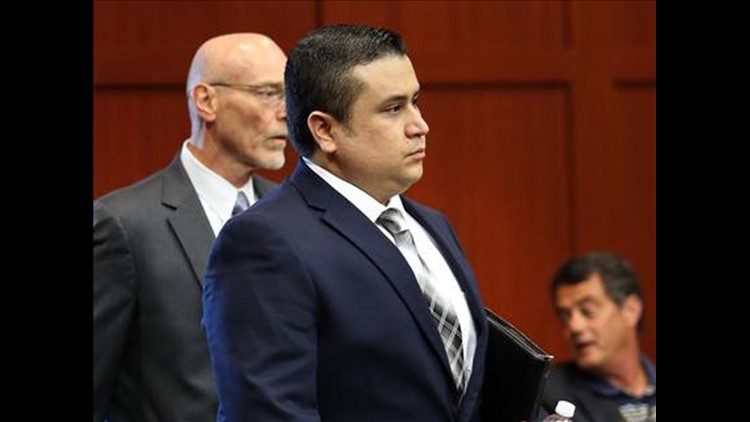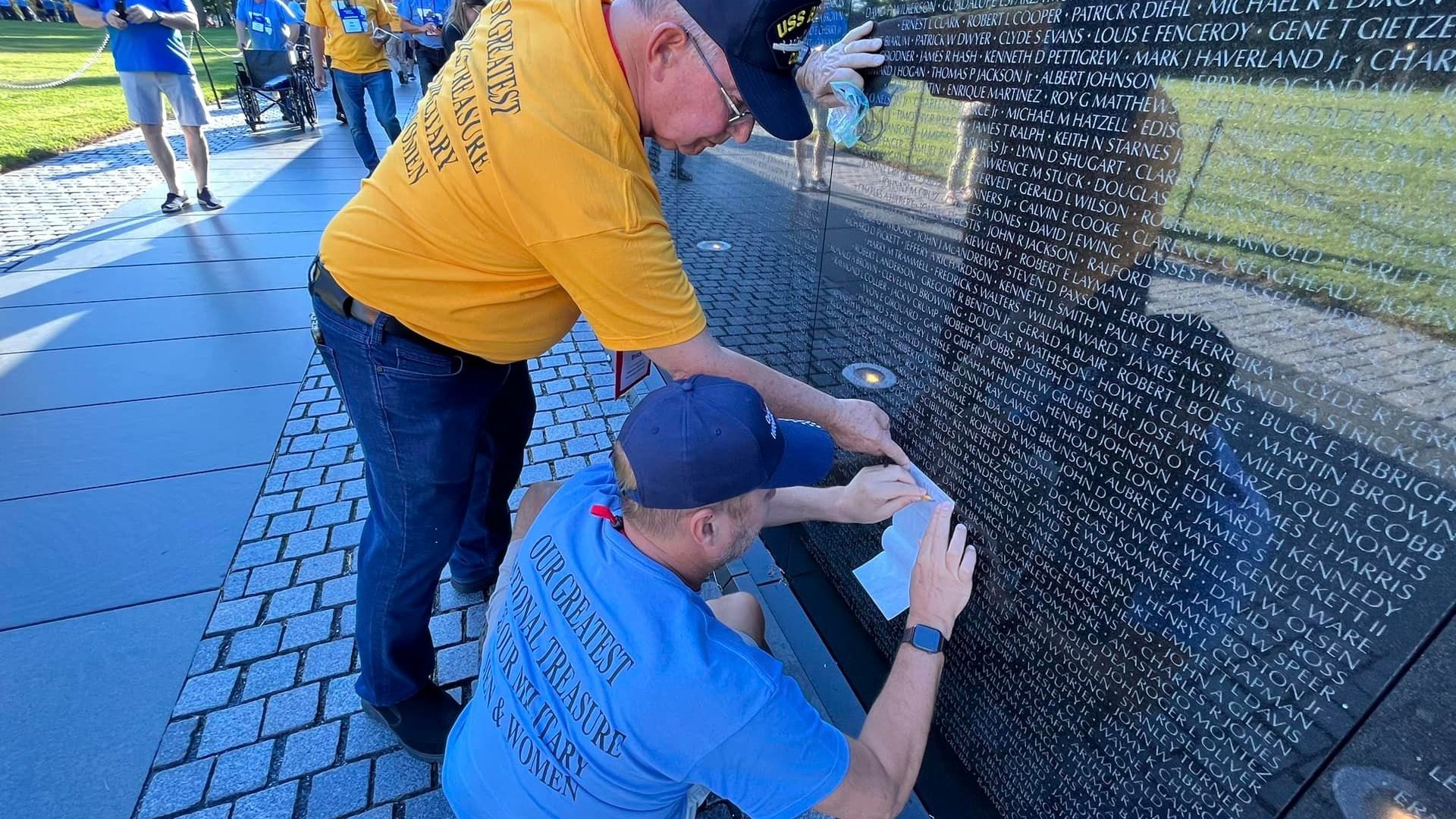(HLN) — A jury of six women heard testimony for a second week in the Florida courtroom where George Zimmerman stands trial for the murder of 17-year-old Trayvon Martin.
Zimmerman, then 28, shot Martin in the chest during a confrontation in the Retreat at Twin Lakes gated community in Sanford, Florida, on the night of February 26, 2012.
Zimmerman is charged with second-degree murder in the case, but his attorneys have maintained that he acted in self-defense.
Police interviews reveal Zimmerman’s side of the story
The lead investigator who conducted three interviews with Zimmerman, including a videotaped walk-through of the shooting scene, provided details as to what Zimmerman claims happened the night of the shooting.
About five hours after the incident, Zimmerman sat down with lead investigator Christopher Serino, and later that day, took detectives to the crime scene to explain how the events unfolded. Jurors watched the videotaped explanation Monday.
Zimmerman, covered in bandages, pointed out to police where he first spotted Martin, described how they watched each other, and then explained how the teen allegedly circled back and disappeared before allegedly surfacing again to confront the neighborhood watch captain.
According to Zimmerman, Martin approached him, and after they exchanged words, Martin punched him in the nose. After falling to the ground from the blow to the face, Zimmerman said that’s when Martin got on top of him and allegedly began slamming his head against the sidewalk. During the altercation, Zimmerman said Martin noticed he was armed with a gun.
“He reached for it. I felt his arm going down my side, and I grabbed it. I grabbed my firearm, and I shot him one time,” Zimmerman told police.
Serino testified that there were no significant differences between Zimmerman’s initial interviews with authorities and the videotaped re-enactment. Serino added that he believed the neighborhood watch captain was telling the truth when he told police he shot the teen in self-defense.
Defense attorney Mark O’Mara questioned Serino about Zimmerman’s fourth interview with police, when Serino teamed up with Officer Doris Singleton for a more aggressive line of questioning.
Serino stated that, during that interview, he suggested to Zimmerman there were surveillance cameras in the area of the shooting that could have captured the attack.
Zimmerman responded, “Thank God, I was hoping somebody videotaped it.”
Singleton, also present during the interview, testified that she did not find any significant differences between Zimmerman’s oral and written statements, and found no evidence Zimmerman had any ill will, spite or hatred toward Martin. Singleton added that Zimmerman appeared to be in shock when he learned that Martin was dead.
Hirotaka Nakasone, a senior scientist from the FBI voice analysis lab, testified the screams for help heard on the 911 call were too short and the quality was too poor for scientific analysis.
Medical examiner: Zimmerman’s injuries not life-threatening
Tuesday, prosecutors presented two more accounts that Zimmerman gave about the shooting, one to his best friend and another to Fox News host Sean Hannity, in an effort to highlight inconsistencies that prosecutors say prove he murdered Martin that night.
Zimmerman’s self-described best friend Mark Osterman answered questions from Prosecutor Bernie de la Rionda about details he wrote in a book with his wife titled, “Defending our Friend: the Most Hated Man in America.”
Osterman said that he spoke with Zimmerman right after the shooting, and testified he believed Zimmerman told him Martin grabbed for Zimmerman’s gun during the altercation.
However, in his interview with police, Zimmerman said he felt Martin reach for the gun, not grab it.
Osterman also testified that Zimmerman was not himself, and appeared wide-eyed and detached after the shooting.
Prosecutors also played Zimmerman’s first TV interview after the shooting in an attempt to reveal another inconsistency in his story. During his interview with Sean Hannity, Zimmerman stated he did not know anything about Florida’s “Stand Your Ground” law, when in fact, Zimmerman attended a criminal law class in which the subject of Florida’s self-defense laws, including “Stand Your Ground,” was covered.
Valerie Rao, a medical examiner who assessed Zimmerman’s injuries by examining the 36 photographs taken of him on the night of the shooting, was called to the stand Tuesday. Dr. Rao testified Zimmerman’s injuries were not life-threatening and the two cuts on his head were so superficial they required no more than a bandage.
Dr. Rao also testified that she would expect to see more serious injuries to Zimmerman’s head if his head had been struck against concrete multiple times like he claimed.
While Dr. Rao testified on direct-examination that she believed Zimmerman’s head injuries were consistent with a single impact, she admitted on cross-examination that he could have been struck more than once.
Witness: Zimmerman well-versed in Florida’s self-defense laws
Current military prosecutor and former law professor Alexis Carter testified Wednesday that he discussed Florida’s self-defense and “Stand Your Ground” laws during a class Zimmerman took in 2010.
Carter stated that Zimmerman was one of his better students and even earned an “A” in the Seminole State College criminal procedure class.
While Zimmerman’s defense attorney Mark O’Mara argued his client’s school records and class history were not relevant, the State argued Carter’s testimony proved Zimmerman was lying when he told Sean Hannity that he knew nothing about Florida’s “Stand Your Ground” law.
To further the prosecution’s belief that Zimmerman pressed the gun into Martin’s chest during the altercation, firearms analyst Amy Siewert was called to testify.
While Siewert testified she could not say if the gun was pressed or pushed into Martin’s chest, she did believe the muzzle of the gun was touching Martin’s clothing.
Later Wednesday, the State’s DNA expert testified that an examination of swabs taken from Zimmerman’s gun found no DNA or blood from Martin to corroborate Zimmerman’s story that Martin grabbed his gun during the fight.
Anthony Gorgone testified that the only blood found on the gun’s pistol grip was Zimmerman’s, but said DNA from the holster and slide could not include or exclude Martin.
Gorgone also testified that swabs taken from the sleeves and cuffs of Martin’s hoodie revealed no blood or DNA that could be linked to Zimmerman. He added swabs from underneath Martin’s fingernails showed no sign of Zimmerman’s DNA.
On cross-examination, defense attorney Don West argued that the rain on the night of the shooting could have destroyed any DNA evidence that would have corroborated Zimmerman’s story.
Martin’s mother: That’s my son screaming for help
Martin’s mother, Sybrina Fulton, was called to the witness stand Friday to identify the screams for help heard on a 911 call from the night her son was killed.
After prosecutors played the recording in the courtroom, Sybrina Fulton identified the voice screaming for help as “Trayvon Benjamin Martin.”
During cross-examination, Martin’s mother testified that hearing the 911 call was “absolutely” one of the worst things she ever experienced.
“As his mother, there was no doubt it was him screaming?” asked defense attorney Mark O’Mara.
“Absolutely,” Sybrina Fulton said.
Martin’s 22-year-old brother, Jahvaris Fulton, also testified that he recognized the voice on the 911 call as his brother.
During cross-examination, Mark O’Mara mentioned an interview where Jahvaris Fulton once said he was not initially certain whose voice was screaming on the call.
“When I heard it in the mayor’s office [for the first time], I guess I didn’t want to believe it was him,” Fulton said. “I was clouded by shock and sadness.”
On re-direct, Jahvaris Fulton testified that when he heard the call for the first time he was emotional and in denial about his brother’s death.
After jurors heard from Martin’s mother and brother, the State called the associate medical examiner who conducted the final autopsy on Martin’s body.
Dr. Shiping Bao determined Martin’s cause of death was a gunshot wound to the chest, and the manner of death was homicide.
Bao testified that, in his opinion, Martin did not die immediately and was “suffering” after he was shot.
“I believe he was alive for one to 10 minutes after he was shot. His heart was bleeding until there was no blood left,” Bao said. “There’s no chance he could survive. Zero.”
During his testimony, Bao was seen reading from his personal notes. Defense attorney Don West asked for copies of Bao’s notes to go over during the lunch recess, which led to a defiant response from the medical examiner. The judge allowed both the defense and prosecution to get copies of Bao’s notes. The judge also told Bao to tell the court if he needed to refer to his notes.
The notes showed that Bao changed his opinion on how long Martin could have been alive and whether the marijuana found in Martin’s system was enough to affect him. Bao originally believed Martin could have been alive one to three minutes after he was shot, but he said he changed his opinion after a recent case that was similar to Martin’s.
State rests case; Defense calls Zimmerman’s mom to stand
After the prosecution rested its case shortly before 5 p.m. ET Friday, defense attorney Mark O’Mara argued for a judgment of acquittal, saying the State did not present enough direct evidence that Zimmerman did not act in self-defense. He also disputed the State’s claim that Zimmerman acted with ill will, hatred or spite.
In his rebuttal, assistant state attorney Richard Mantei called Zimmerman a liar and pointed out inconsistencies in his version of events and the direct evidence presented in court. Judge Debra Nelson denied the defense motion, saying the decision is ultimately with the jury.
The defense started presenting its case, calling its first witness — Gladys Zimmerman, the mother of George Zimmerman.
Gladys Zimmerman told jurors that it was her son’s voice heard screaming for help in a 911 call. Zimmerman said she had heard her son scream, cry, play and yell in numerous situations over the years, which is how she was able to recognize his voice this time.
Jorge Mesa, Zimmerman’s uncle, also took the stand Friday, claiming that was his nephew’s voice heard on the 911 call.
Court is in recess until Monday.



